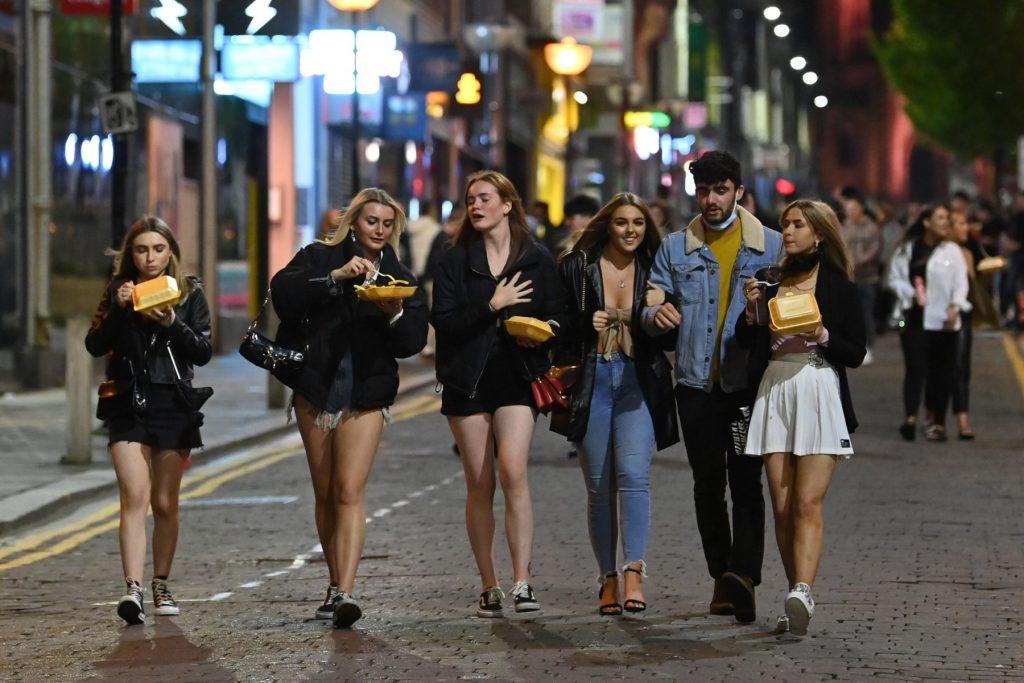Johnson calls an end to most Covid restrictions in England
The relaxing of restrictions have been seen as a concession to critics angry at revelations that he and his staff broke Covid lockdown rules by holding parties at Downing Street.
UK Prime Minister Boris Johnson on Wednesday said most restrictions deployed to fight the latest wave of the Covid pandemic in England would be lifted from next week.
People will no longer have to wear masks in closed spaces, work from home and prove vaccination to enter public spaces such as nightclubs, Johnson told parliament.
“Because of the extraordinary booster campaign… we can return to Plan A in England and allow Plan B regulations to expire,” Johnson said.
Last month, England switched to “Plan B” in order to cope with what Johnson called a “tidal wave” of expected infections from the Omicron variant.
But he had to fight his own party to get the changes into law, as Conservative colleagues called the restrictions a step too far and a curb to public freedoms.
The relaxing of restrictions have been seen as a concession to critics angry at revelations that he and his staff broke Covid lockdown rules by holding parties at Downing Street.
Johnson told MPs: “While there are some places where cases are likely to continue rising, including in primary schools, our scientists believe it is likely that the Omicron wave has now peaked nationally.”
Secondary school pupils will no longer be required to wear face masks from Thursday, Johnson said, calling for a review of self-isolation rules to be brought forward from March 24.
Pandemic ‘not over’
After the Omicron variant emerged, Britain’s daily caseload for Covid topped a record 200,000 infections in early January, but has now dropped to less than half that.
“As Covid becomes endemic, we will need to replace legal requirements with advice and guidance, urging people with the virus to be careful and considerate of others,” Johnson said.
There was however still significant pressure on the state-run National Health Service “across our country”, Johnson said, encouraging people to have a booster vaccination.
“We know that around 90% of people in intensive care are not boosted,” Johnson said, insisting “the pandemic is not over”.
“Omicron is not a mild disease for everyone, especially if you’re not vaccinated.”
Latest government figures on Tuesday recorded 438 deaths within 28 days of a positive test for Covid, taking the overall toll to more than 152,500 since early 2020.
Facing restive Tory backbenchers, the prime minister had rebuffed calls by some scientists to impose a full lockdown in December, and allowed sporting events to continue with capacity crowds in England.
The devolved governments of Scotland and Wales imposed bans on large crowds at sports fixtures last month, but have now lifted that rule in time for the Six Nations rugby tournament starting next month.
Scotland on Tuesday said it was easing other coronavirus restrictions, allowing nightclubs to reopen and no longer requiring table service in bars.
Guidance asking people to stick to a three household limit on indoor gatherings will also be lifted, said Scottish First Minister Nicola Sturgeon.
The Welsh government has said a decline in Covid cases in intensive care means it will scale down its alert level from two to zero in coming weeks.
Subscribe to our newsletter
To be updated with all the latest news and analyses daily.
